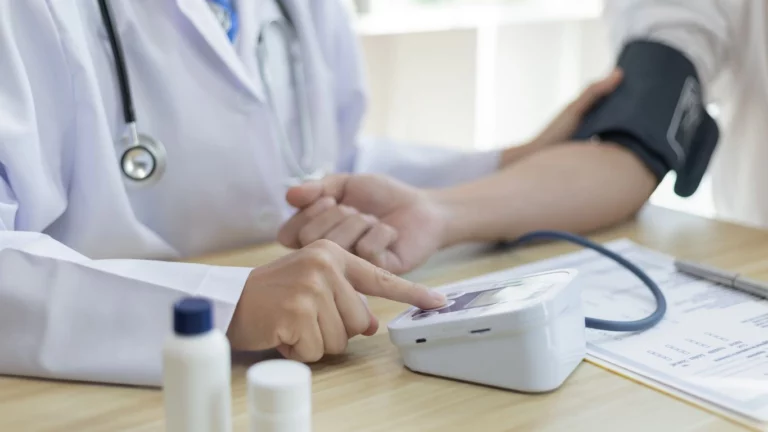Hypertension and Cognitive Health Concerns: What You Need to Know
If you’re dealing with high blood pressure, or hypertension, you’ve probably heard a lot about its impact on the heart and overall health. But did you know that it can also affect your brain? Yep, hypertension isn’t just a risk for your ticker—it can mess with your cognitive function too. Let’s break it down, so you can better understand how your blood pressure might be connected to your brain health and what you can do about it.

How Hypertension Affects Your Brain
So here’s the deal: high blood pressure can cause damage to your blood vessels, which are responsible for delivering oxygen and nutrients to your brain. When these vessels get weakened or clogged, it makes it harder for your brain to get the good stuff it needs to function properly. Over time, this can lead to problems with memory, concentration, and even increase your risk of things like dementia or strokes.
Now, you might be wondering how all this plays out in real life. Well, people with uncontrolled hypertension often report having trouble focusing or remembering things. It’s like trying to run a car without enough fuel—it might still go, but it’s not going to perform as well.
What’s the Connection Between Hypertension and Cognitive Decline?
If you’re asking how hypertension is connected to cognitive decline, it’s all about the blood flow to your brain. Think of your brain as a machine that needs steady fuel—this fuel comes from blood, which carries oxygen and nutrients. When high blood pressure becomes chronic, it can damage the blood vessels that supply your brain, leading to cognitive problems.
Researchers have found that people with hypertension are more likely to experience things like mild cognitive impairment (MCI) and, in the long run, even dementia. These conditions can make it harder to remember things, think clearly, or perform everyday tasks. And the scary thing? This process can happen without you even realizing it’s going on.

The Warning Signs of Cognitive Decline from Hypertension
Okay, so how do you know if your brain is being affected by hypertension? Well, the tricky part is that the signs often creep up slowly. But there are a few warning signals you can look out for:
- Memory problems: Forgetting things that you usually remember easily, like names, dates, or where you put your keys.
- Trouble concentrating: You might find it harder to focus on tasks that you used to breeze through.
- Difficulty making decisions: When you’re dealing with high blood pressure for a long time, your ability to make clear, fast decisions can get muddled.
- Confusion or disorientation: If you feel a little lost or confused more often than usual, it’s worth paying attention to.
If any of this sounds familiar, it’s a good idea to talk to your doctor about both your blood pressure and cognitive health.
Managing Hypertension to Protect Your Brain
Good news: there’s plenty you can do to manage hypertension and protect your brain health. Taking control of your blood pressure is key, and doing so may even help reduce cognitive decline in the long run. Here’s what you can do:
- Watch your diet: Eating a heart-healthy diet is a win for both your blood pressure and your brain. The Mediterranean diet, rich in fruits, vegetables, whole grains, and healthy fats, is often recommended for those with hypertension.
- Stay active: Regular physical activity helps improve blood flow, which is great for both your heart and brain.
- Monitor your blood pressure: Keeping track of your blood pressure regularly can help you stay on top of things and catch any changes early.
- Take your meds as prescribed: If your doctor has given you medication for hypertension, make sure you’re following their advice to keep it under control.
- Reduce stress: Chronic stress can raise your blood pressure and worsen cognitive problems. Find ways to relax, whether it’s through meditation, breathing exercises, or just taking a break when you need it.

Hypertension and Dementia: What’s the Link?
Now, let’s talk about the big one—dementia. High blood pressure has long been linked to an increased risk of dementia, particularly Alzheimer’s disease. In fact, studies have shown that people with high blood pressure in midlife are more likely to develop dementia later on.
It’s not just the overall high pressure that’s an issue—it’s also the fluctuations in blood pressure that can mess with brain health. Sudden increases or drops in blood pressure can damage the blood vessels in the brain, leading to cognitive problems over time.
How Hypertension Increases Stroke Risk
Along with the risk of cognitive decline, hypertension also significantly raises the risk of stroke. Strokes happen when blood flow to the brain is interrupted, either because of a blocked blood vessel or a burst one. Since high blood pressure can damage your blood vessels over time, it’s no surprise that it’s a major contributor to stroke risk.
Preventing hypertension from getting out of hand can help keep your brain’s blood supply flowing properly, lowering your risk of both stroke and the cognitive issues that can follow.
Can Lowering Blood Pressure Help Cognitive Health?
Absolutely. Studies suggest that lowering your blood pressure can have a positive impact on cognitive function. If you’re able to get your blood pressure under control, you might notice improvements in memory, concentration, and decision-making. Plus, long-term management can reduce the risk of severe cognitive decline as you age.
Conclusion: Take Action for Your Heart and Brain
Managing hypertension isn’t just about keeping your heart healthy—it’s also crucial for protecting your brain. With the right lifestyle changes and medical support, you can keep your blood pressure in check and reduce your risk of cognitive decline, dementia, and stroke. Remember, your brain needs healthy blood flow to thrive, and you can help make that happen by prioritizing your overall health.

Appendices
References
- American Heart Association. (2024). Hypertension and Cognitive Health. Read Article
- Smith, R., & Jones, T. (2021). Hypertension and Brain Health: The Risks. Journal of Hypertension, 34(3), 210-215. Read Article
- National Institutes of Health (NIH). (2024). High Blood Pressure and Its Impact on the Brain. Neurology Review, 40(2), 50-60. Read Article
FAQs
- How does hypertension affect cognitive function? Hypertension can cause damage to blood vessels in the brain, leading to cognitive decline and increased risks of conditions like dementia and stroke.
- Can I reverse cognitive decline caused by high blood pressure? While full reversal may not always be possible, managing hypertension can help prevent further cognitive damage and improve brain health.
- What is the best way to manage hypertension? A combination of medication, a healthy diet, regular physical activity, and stress reduction can help manage hypertension effectively.
- How do I know if my hypertension is affecting my brain? Early warning signs include memory problems, difficulty concentrating, and confusion. Speak with your healthcare provider if you’re concerned.
Disclaimer
The information provided in this article is for educational purposes only and should not be construed as medical advice. Please consult with a healthcare professional for diagnosis and treatment tailored to your individual needs. The author and the website are not responsible for any adverse outcomes resulting from the use of the information provided.

Dr. Gwenna Aazee is a board-certified Internal Medicine Physician with a special focus on hypertension management, chronic disease prevention, and patient education. With years of experience in both clinical practice and medical writing, she’s passionate about turning evidence-based medicine into accessible, actionable advice. Through her work at Healthusias.com, Dr. Aazee empowers readers to take charge of their health with confidence and clarity. Off the clock, she enjoys deep dives into nutrition research, long walks with her rescue pup, and simplifying medical jargon one article at a time.







